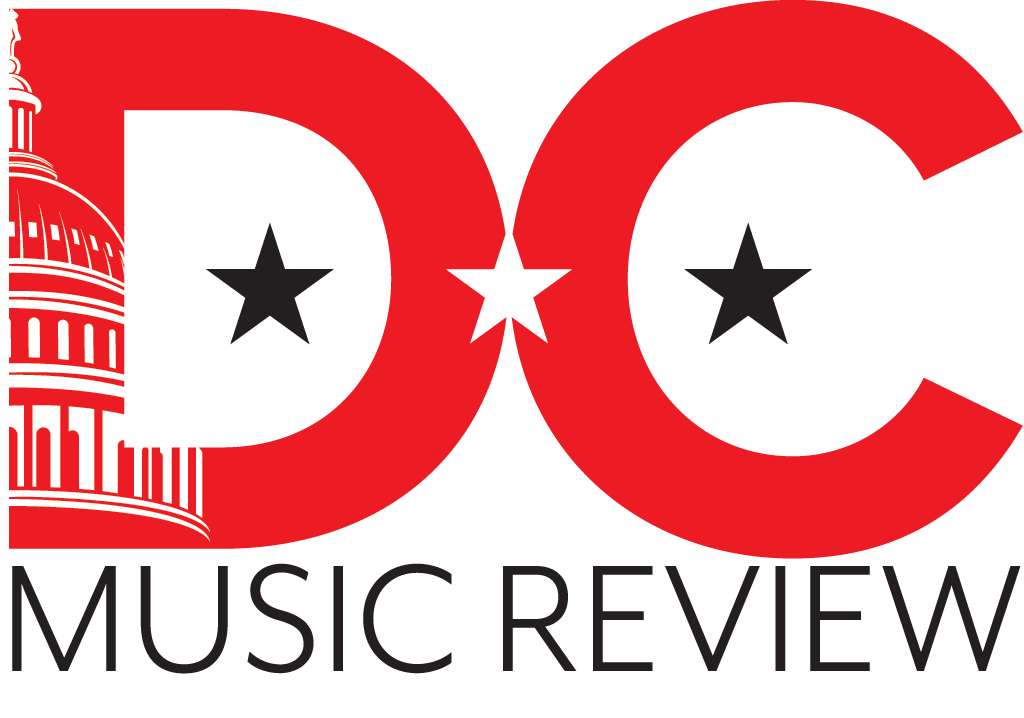Karin McLaughlin: So first of all, I'd like to say I'm really honored to be able to do this interview and I'm really excited to get to talk to you. Let's do an intro for people who may not know who you are, if you can just give us your musical bio. I know, that's kind of hard but just in a nutshell, doesn't have to be too specific, we'll get into some specifics in a bit.
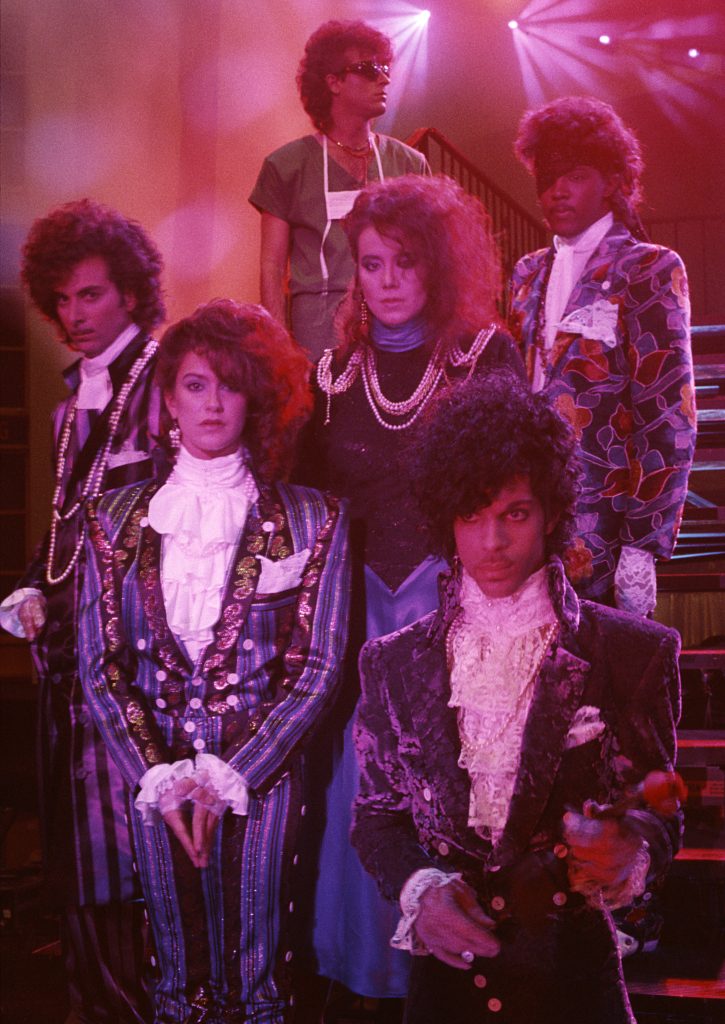 A Very Young Set of The Revolution members backing Prince
A Very Young Set of The Revolution members backing PrinceMatthew Fink aka 'Doctor Fink": Okay, well I started playing music at a very young age, and studying the keyboards when I was about six. The first band I was ever in was put together when I was 12 years old and we start playing junior high shows and other things like that all through my high school years, and then I was with a couple bands before Prince. Prince brought me on board in late 78, and I worked with him for 12 years. After that, I got into producing for a local company here in Minneapolis, and became a staff producer. I had a pretty good stint with that and then I moved on to video game music in the late 90s and doing occasional documentary film music, you know, jingles and commercials, so to speak. I'm still to this day, very active, running my studio out of my home, producing artists and doing session work for people all over the planet. Now the last couple years, I've been working for a while with a cool company that started a new streaming music service as well.

A Very Young Set of The Revolution members backing Prince
KM: So you've kind of rode the wave of music since an early an early lad. Of course, one of the first questions I'm going to ask is if doctor means you actually have a degree or a if it's just a nickname. If it's a nickname we've got to know how you earned that.
MF: It's a nickname. It's just something that came up early on, he (Prince) was looking for a stage character.
KM: We all know, Prince and the Revolution was huge, and still is, I mean, I know people younger, that are still just discovering all that music and that whole musical catalog. You were with the band and Prince during the big, huge days of Purple Rain and, like you said, you know, the 70s and 80s - how did you feel when all of this was going on? Were you guys aware of how big this was really going to be when you all got together in the very beginning?
MF: Well, you really never know in the beginning where it's going to lead, although your hopes and dreams are there to bring it to a successful place. It's just all about working as hard as you can and envisioning that dream and hoping that you can get there and we did, you know, we just worked really hard. Prince, without him, of course, who knows what would have happened with any of us, but his work ethic and his prolific songwriting is really credited for bringing it to fruition and we were fortunate to be along with him for the ride and have a chance and the opportunity to to help them achieve that goal.
KM: The band, the albums, the music, have so much recognition and are hailed as being some of the best music of generations, not just one generation, but several. Loking back on it, how impactful is it to be able to say that you got up on stage and participated in this, without using it as a pun, but revolutionary music? Knowing what you know now, how does that, if at all, change what you feel as a musician that this all has occurred and you were part of it versus your perception of it at the time? Does it give you a different sense of, not accomplishment, but being part of something so major - you've got all these notches on your belt - at the time that you were doing it, did you feel at all the same or have any idea?
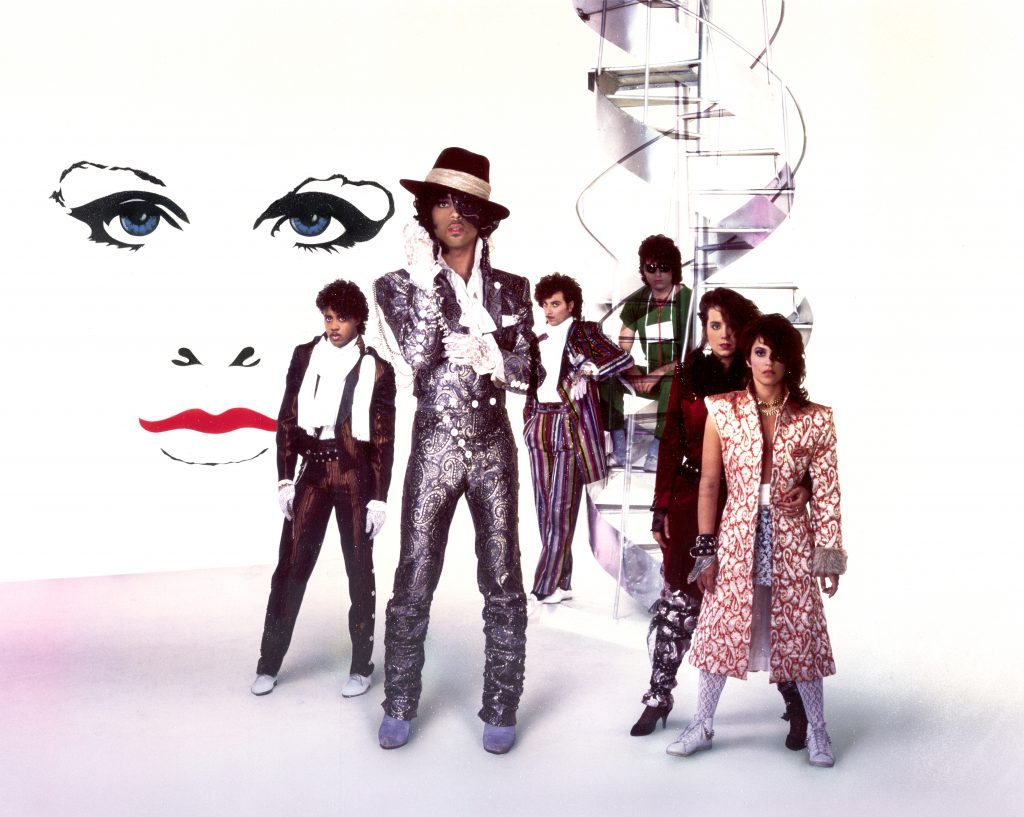
Prince & The Revolution (Photo Credit: Larry Williams)

MF: You don't feel it as much. You don't realize how much you’re impacting the public and the fans. Obviously, when you're on tour and you're playing, the audience is highly appreciative and you get that feedback from them. All these years later getting back into it again with the group you tend to forget over time just how influential it really was and then it just brings it all back and reminds you that the legacy has been there all along and people really haven't forgotten about him or the group or pretty much anybody affiliated that has worked with him over the years. It's really astounding to me just how wide ranging his appeal to the public across the planet was. It's just really incredible.
KM: How much fun was it being a part of not only, obviously, a great band, but something that was so fun? You had this character that you got to play on stage - how does that differ from anything else you've done musically? How did that change the persona of not only yourself as a musician, but as a person when you were on stage, and did it make it more of an act?
MF: Well I was trained growing up and did a lot of theater. I came from a very theatrical background -my parents both have degrees in theater from the University of Minnesota and they were highly active in theater in the Twin Cities here in Minneapolis St. Paul and they did a lot of work in theater. My father directed plays and acted in them, my mother did the same. She had her own voice over talent agency where she had a whole stable of actors that she booked for voiceover work for commercials and TV spots, and things like that. I was exposed to that my whole life. One of my first memories was at the age of three and a half, four years old, seeing my parents do a play together. They both starred in a play, a local community theater play. That whole part of the upbringing influenced me a lot and then, of course, they brought music to me in the form of piano lessons and things like that. I was growing up, not only studying music, but I was also acting myself because they introduced it to me and gave me the opportunity to do that. So portraying Dr. Fink or becoming Dr. Fink, it was kind of second nature to me to have this persona. It all came about because Prince wanted me to be the quirky character in the band. He even asked me, he said, "I want you to come up with something that's different." Now originally, I had a guy where I was dressed in black and white striped jail outfit. When we first debuted on American Bandstand back in '79 that's what I was wearing on stage and then when we went on tour later that year with Rick James, he was wearing a jail suit during one of the songs called "Bustin Out of L Seven" and Prince said, "You know what? The headliner Rick is wearing a jail suit and so you're gonna have to change your look." I said, "Ohhhhh", this was about three shows into the tour. I said, "Okay, you have any ideas?" He goes, "No." (laughs)
KM: I find it hard to believe that didn't have any ideas or that he couldn't come up with something else. (laughs)
MF: It was the kind of thing where he just had an epiphany about it and he came to me before the show that day and he wanted me to change horses and I just said, okay. He asked, "What were your alternative ideas?" and I said, "Well, one of them was a guy being a surgeon in a surgeon's outfit," and he goes, "That's really different, I think that we're gonna try that!" So he has our wardrobe person who was on the road with us run out to a uniform store in Chicago and they brought me back all of the surgeons accessories and scrub suits and everything and that's how I became a doctor right there on the spot.
KM: How was it playing with Prince - what impact did he have on your life as far as musically and personally?
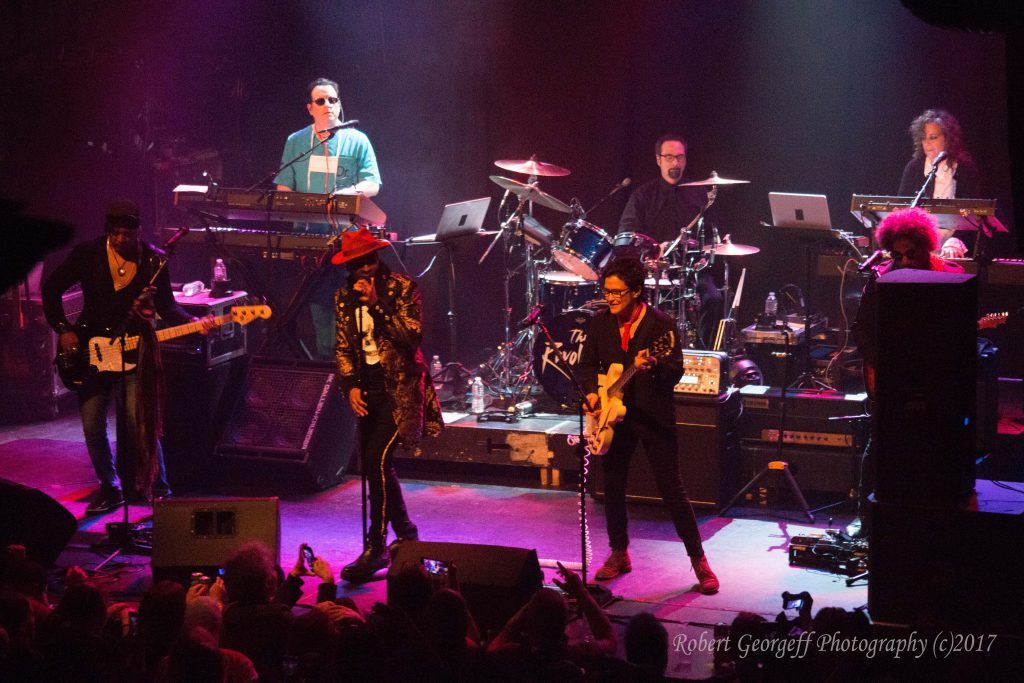
Dr. Fink With The Revolution
MF: Well, the main thing was the dedication and discipline that went into creating his whole thing. He was the type of person whose work ethic was 110%, it wasn't like anything I'd ever encountered before, any band I've been in or any band leader of people I've worked with up till that point. His drive and commitment and creativity was unmatched on anything and that's how he behaved throughout his whole career. He was just a 24-7 creating machine and he couldn't turn the spigot off, it just flowed freely, the ideas were just constant, he couldn't turn it off. The years I knew him, he was lucky if he was sleeping four or five hours a night and the rest of the time was spent eating, breathing and drinking music. It was really a sight to behold throughout that whole time. I felt like I had to do my best to try to keep up with him even though I failed at it at times. He obviously kept me in place there for quite a while. I was there for 12 years but, you know, it just really was really wild to be on that ride and watch him bring this genius on the world, it was really something else - really, really unique, a one in a billion type person that comes into the world that does that.

Dr. Fink With The Revolution
KM: Yeah, I'm definitely glad that I was around, growing up while the music was coming out new, I think everybody obviously is. You kind of mentioned, it's amazing to see how impactful the music still is. Now that you guys are getting geared up again, and The Revolution is getting out and doing more shows again, what's different and what's the same about the life, the camaraderie and, basically everything? What's something that's never changed and you just picked up right where you left off and then what's kind of different, if anything?
MF: Well, obviously the hardest thing is to not have him there and the have that leadership role, you know? Right now, it has more of a democratic feel to it whereas in the past, he would call the shots, he wouldn't ask for your opinion. For the most part, it was just 'this is what we're doing, here are the songs, you're gonna be in the studio tomorrow, and you're going to do this and do that' and 'Ohh, wait a minute! Here's five songs I just wrote last week that I did all by myself in the studio and now it's going on the next album, so here's the cassette, go ahead and learn it by ear.' Yeah, so that's what that was (laughs). You just took it as a day by day because you just never knew what he was going to do. He would just show up at rehearsal and go, 'I got a new song I wanna try out with the band, here we go, I'll show you the parts.'
KM: The blessing and the curse of the musical genius, I guess.
MF: Yeah, exactly. So you just have to roll with it and keep up with him as best you could because he was so prolific that he left us a legacy of material in his so called vault that's unparalleled, I think, for just about anybody, except maybe Bob Dylan. What I've read about Bob Dylan is that he was extremely prolific and had a lot of unreleased material. I don't know how that extends to other artists out there. You know, I'm sure we're going to hear some things from Bowie. probably more from Led Zeppelin.
KM: Yeah, Tom Petty, in fact, is coming out with a new album.
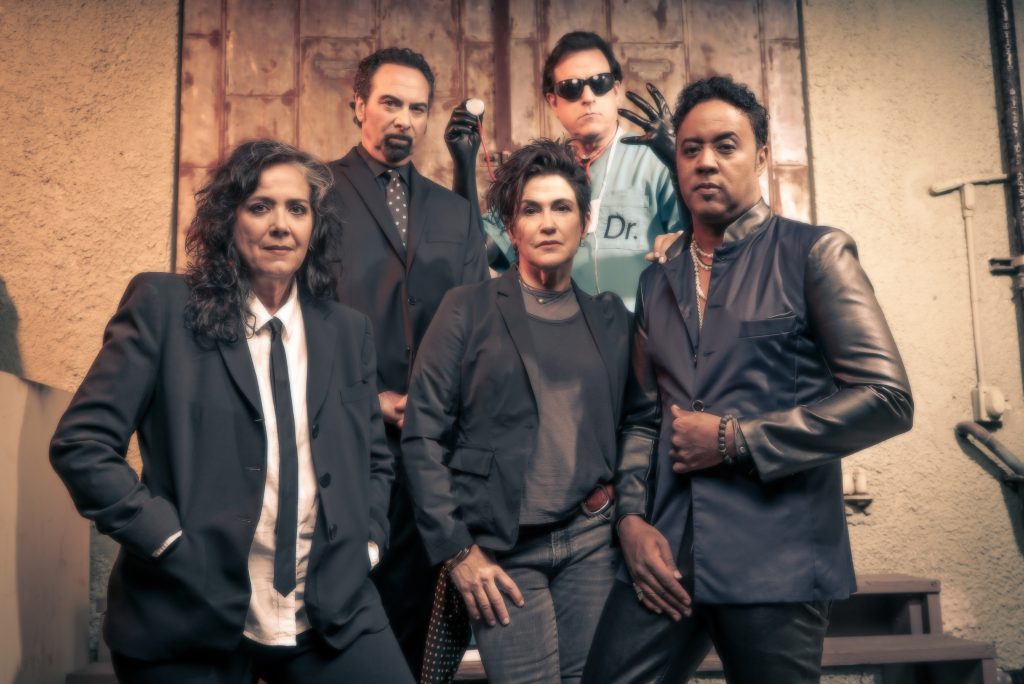
MF: Yeah, yeah, Tom Petty. I mean, all those kinds of great artists always had unreleased material sitting on the shelf. Prince though, I don't know, he may have enough material for the next 30 years or more beyond to release an album every year, I'm not really sure, I just keep hearing stories about what's in the vault. When I first worked with him once Paisley Park had been established, I was able to go in the vault at times and look inside to see what's in there. Of course it had all of his past albums stored in there, all the master recordings up to that point and unreleased material as well. They're actually releasing today an album, you may have heard about: Prince: Piano and A Microphone 1983 and it's just him on the piano singing in the studio directly to a cassette tape. When they went in the vault, to look at material, the people curating that found that particular tape chose it to be one of the first pieces of work to be released and I've heard pieces from that - it's absolutely astounding. A lot of it is spontaneous as it's being recorded. It's not necessarily rehearsed, he may have written skeletal versions of some of these songs and then he just went for and it's highly unrehearsed, but it's actually sounding as if it is, so that just gives you an idea of his genius of how he was so spontaneous and sounded as if he'd been working on it for a long time. I highly recommend people get that one! In fact, one of the songs that I was able to hear just the other night - I went and saw the movie The Black Klansmen which is Spike Lee's latest film and he used one of the songs from that album for the end credits - a song called "Mary, Don't You Weap" and it is just blows you away, I mean I was really blown away. In fact, I don't usually sit through all the credits, but I sat there so I could hear the song. I mean, he is just such an amazing performer, the vocal work on that song, playing on it, just amazing.

KM: He's one of those people where you think I mean, obviously not everyone got to, but personally, I thank my lucky stars that I got to see him live once. I know people, one guy in particular, that I work with for DC Music Review that saw him several times but just being able to see it live, it's just like Tom Petty, you get to see these great musicians one time and it's so impactful and so amazing and you just think, "What would I have done if he had passed away and I had never seen him live?!" I would be kicking myself from here to eternity about it.
MF: Yeah, definitely. When did you get to see him?
KM: I saw him, I think it was 2008 at Madison Square Garden, so it's pretty recent . I mean, in the scheme of things, obviously, but a group of my girlfriends from college and I did a trip in December, I think it was like December 18th, so it was right around Christmas time when New York is almost magical and we all went to Madison Square Garden. ?uestlove was drumming with him and it was just amazing. Ok, so if I could, is there a story that is funny or that really resonates about you and Prince, or being on tour or kind of anything that had to do with that period of time? I mean, I'm sure there's a million.

MF: Yeah, there's definitely a lot I'll say that. I believe it was the end of the 1999 tour, and we were in Cincinnati and we decided that the band at the time we're gonna have a food fight after the show, but it actually started by accident. It was like the night before Cincinnati, a couple members of The Time came into our dressing room and started to joke around with us and then I think our drummer threw a piece of fruit at one of the guys, then next thing you know, they went and got some fruit and came back and decided to toss some fruit at us and it escalated from there and became what's known as the famous 'Prince and The Time Food Fight' and it's been recounted several times.

KM: I was just gonna say there's got to be some skits on like a Dave Chappelle show or something about that. (laughs)
MF: That would have been a good one! So it went on in the dressing rooms a little bit that night and then they went to our hotel rooms, The Time members, and they decided they were going to put mustard and stuff on the door knobs of our doors, things like that so that when we got there, there'd be a big mess. Well, the next night in Cincinnati, Prince ordered in about 50 or 6o cream pies and they were brought back stage. Then after the show we had it out with everybody and had a big cream pie fight like in an old silent film, so it was it was really fun. (laughs).
KM: That's great. So I don't want to take up a ton of your time, but there is one question that I kind of like to ask everybody I get to interview and you really have probably crossed off a ton of things but I like to ask what, if anything, is on the music bucket list? I mean, playing with Prince for all these years, getting a Grammy, being on the album, Purple Rain, that sold what, 18 million copies or something, I'm guessing you've checked a lot of these things off, but is there anything left on the musical bucket list that you have as a goal to cross off anytime soon?
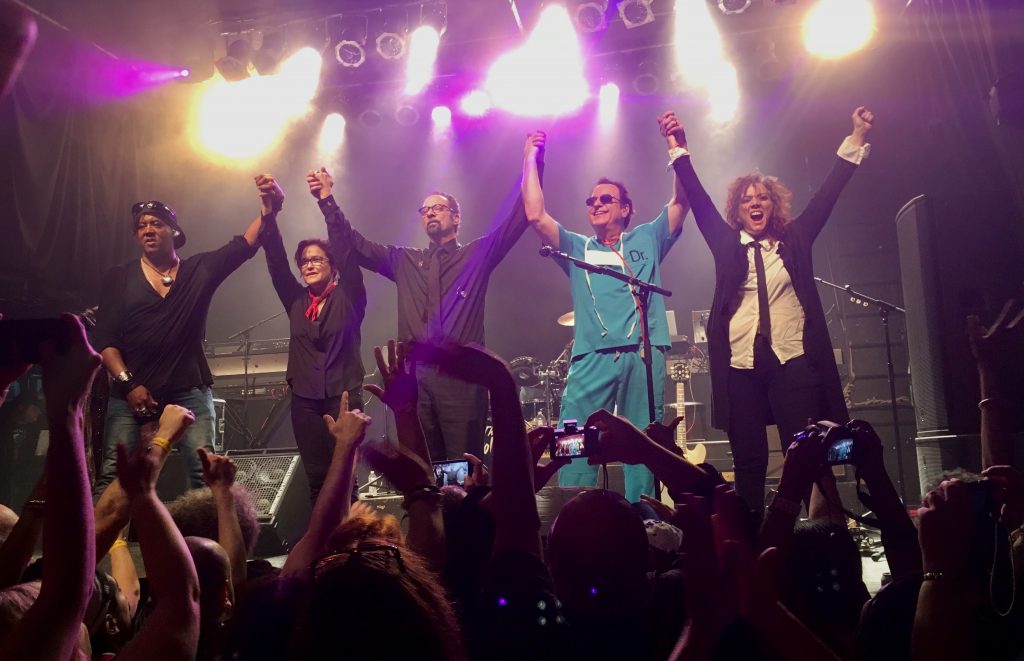
MF: Yeah, you know, I've been working with some new artists lately myself and producing and I'd like to hopefully help some young up-and-coming artists gain some recognition - that's one goal. The other goal at this point would be to release some unheard Prince and The Revolution material which exists in the vault. Hoping that the family will put that out someday and we will be involved in curating those songs and possibly helping to remix them so they'll bring a more contemporary vibe and possibly even release a couple new songs that we collaborate on, possibly with another up-and-coming artists. So those are the kinds of things we're just starting to talk about. We don't want to do it too soon here, you know, Prince obviously has got so much unreleased material - we don't want to step on any toes. Let that come out first and hopefully a couple years down the road some of the material that we can do together.

KM: I think everyone would appreciate that! How is it being on the other side of it working with the production side and working with the new artists as opposed to being on the stage and doing it that way?
MF: Well, I really love it. I've been doing that over the years anyway, and it gave me the opportunity to stay off the road and raise a family and now my two boys are grown up and out of the house and that has given me a lot of freedom now to to do some other things now that they're grown up. So that's what I'm doing.
KM: Well, I definitely hope to hear some new material and look forward to seeing The Revolution back on tour in the DC area, especially. I also want to thank you very much for taking the time to talk with us today.
MF: Absolutely, no problem. Thank you. Have a good day.
See Dr. Fink and The Revolution perform at The Fillmore Silver Spring this Friday, October 26, 2018.
Performance Details
Performance Details
Performance
Details
Friday, October 26, 2018
Doors: 7:00 PM
Show: 8:00 PM
Fillmore Silver Spring
8656 Colesville Road
Silver Spring, MD 20910
$40 - General Admission
